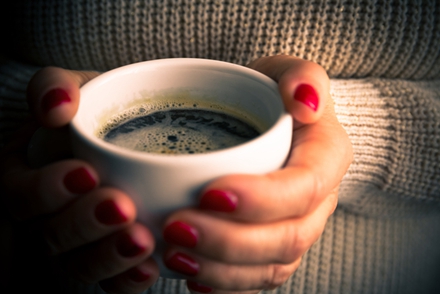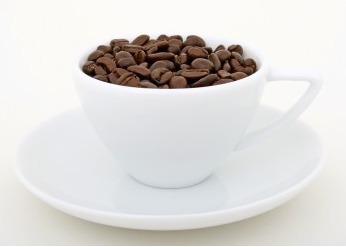The secret of the rumor: does drinking coffee help you stay healthy?

Some people like coffee, some people like iced coffee, and others don't like coffee at all. Until recently, some people said that if you want to stay healthy, you'd better quit coffee.
You don't have to quit coffee anymore. Because the systematic summary of the results of the study-the most powerful way to measure scientific evidence-suggests that most of the data currently support the use of coffee. The rate of premature death, the incidence of Ⅱ diabetes and the decline in the incidence of some cancers are all associated with coffee drinking.
However, some people need to pay attention to the amount of coffee. High intake of coffee is associated with an increased incidence of gastric cancer and aggravates heart diseases.
The systematic summary of the relevant research results shows that most of the data support the use of coffee at present.
Coffee and suicide
People who drink coffee live longer. A total of 20 studies of 97 subjects found that coffee drinkers were 14% less likely to die early (for any reason) than those who drank little coffee. Even using 1-2 cups of coffee a day can reduce your diet by 8%. People who consumed two to four cups of caffeinated coffee a day were 14 percent less likely to die early than those who did not drink coffee.
Coffee and liver cancer
Coffee users, especially men, are less likely to suffer from liver cancer. This is important because liver cancer is one of the six most common cancers in the world and has a high incidence in men. The results of six studies showed that, based on the number of cups of coffee consumed per day, the relative risk of liver cancer decreased by 14% for each extra cup of coffee.
Studies have shown that the natural ingredients in coffee, including caffeinol and caffeinol, have anti-cancer and anti-inflammatory effects. Coffee can help protect the body from toxic substances such as aflatoxins and other carcinogens by anti-toxic biochemical processes in the liver.
Ⅱ diabetes mellitus
Coffee coffee users had a lower prevalence of Ⅱ diabetes. According to 28 studies involving more than 1 million adults, people who consumed three or more cups of coffee a day had a 21% lower risk of developing Ⅱ diabetes than those who drank little or no coffee. For those who consumed six or more cups a day, the consumption rate was reduced by 33%.
Interestingly, the consumption of regular coffee or decaffeinated coffee was reduced. If you consume one cup of regular coffee a day, the relative risk of diabetes will be reduced by 9%, and the consumption of caffeinated coffee will be reduced by 6%.
Many organizations have a problem with decaffeinated coffee. Source: Stuart Colville/Flickr, CC BY-NC
The active ingredients in coffee can help to relieve oxidative stress, that is, the imbalance between free radicals and antioxidant compounds. Coffee contains tryptic acid, which has been shown to promote glucose substitution and improve the sensitivity of trypsin, as well as caffeic acid, which increases the use of blood sugar by muscles, in addition to ingredients that promote the immune system and anti-inflammation.
Coffee and prostate cancer
Coffee users have a low risk of prostate cancer. Thirteen studies of more than 530,000 men showed that men who drank the most coffee had a 10% lower risk of prostate cancer than those who drank the least. Men who drank an extra 2 cups of coffee a day were 2.5% less likely to suffer from the disease.
However, after taking into account different grades of prostate cancer, it was found that coffee did not show a protective effect on high-grade or advanced prostate cancer.
Next, let's explain why we need to pay attention to the amount of coffee.
Coffee and lung cancer
You need to pay attention to the total amount of coffee to reduce the risk of lung cancer. Studies of more than 10,000 adults found that those with the highest coffee intake had a 27% higher risk of lung cancer. Each extra cup of coffee a day leads to an 11% increase in lung cancer risk. There are only several studies on caffeinated coffee, but the findings are contrary to the above: the risk of high consumption of caffeinated coffee is 34% lower.
The related research on coffee comes from the inspection and research projects of the population, and the focus of these projects is to develop diseases, not to find out the causes.
Coffee and pregnancy
If you consume more than one or two cups of coffee a day during pregnancy, the coffee intake is not as high as previously thought, but it is also worth noting.
Previous studies have shown a link between coffee and abortion and other adverse pregnancy consequences, most likely because those studies are not well designed, especially in cases such as low birth weight and congenital malformations. Some miscarriages may also have something to do with women's violent morning sickness. Morning sickness itself is a sign of successful embryo implantation, but pregnant women may be less likely to get coffee because of anxiety.
In previous studies, smoking is often associated with coffee intake, but this adjustment does not necessarily occur, so some of them may also be caused by smoking. The daily coffee intake of pregnant women established by the American Academy of Polytechnic Sciences should be less than 200 mg. This is equivalent to 1-2 cups of coffee a day. (a cup of instant coffee contains 50-100 mg of caffeine; currently brewed coffee contains 100-150 mg of caffeine per cup)
Coffee and blood
The last point to pay attention to has something to do with your heart. A large amount of caffeine increases blood pressure and homocysteine levels in a short time, which is another risk factor for heart disease. But coffee has nothing to do with the long-term relationship between heart disease and heart disease.
People with high blood pressure or heart disease, the elderly, teenagers, children, and those who do not regularly use coffee are more sensitive to "energy" ingredients, cocoa and caffeine in coffee. Decaffeinated coffee can help these people.
It should be noted that most of the studies on coffee are based on population inspection studies, and their purpose is to find the cause, not to find the cause. Part of the reason is that it is very difficult to buy a restaurant that consumes more coffee and measure the health consequences over the years. However, this is a really good idea-do you want to take part in this kind of research? (author: Clare Collins, Professor of Medicine and Food; Fan Jun)
Source: environmental science
Important Notice :
前街咖啡 FrontStreet Coffee has moved to new addredd:
FrontStreet Coffee Address: 315,Donghua East Road,GuangZhou
Tel:020 38364473
- Prev

A 23% drop in coffee production in Indonesia leads to a decline in exports
According to the Jakarta Post of Indonesia on June 25, the International Coffee Organization (ICO) said that as the dry season continues, Indonesian coffee production has declined and exports have declined. Data show that coffee production fell 23 per cent year-on-year to 54000 tons from April 2014 to March 2015, while exports fell from 61200 tons to 33600 tons. And it is expected that without the influence of El Ni ñ o, the weather will be stable.
- Next

LA ·MARZOCCO ·2 of Russ in Coffee Machine-History
Giuseppe Bambi uses Marzocco (a lion sitting on a Florentine lily) as a symbol of victory and success, and names the company La Marzocco. At that time, manufacturers were not only skilled craftsmen, but also pioneers in thinking about the difficulties and challenges they faced at that time. Giuseppe Bambi is a member of this pioneer group. He's a...
Related
- Workers collapse! Lucky suspects that it will introduce freshly cut fruits?!
- 1-point subsidy recipients wear thousand-yuan watches?! Local response: For low-income households
- Can lightly roasted coffee beans be used to extract espresso? How finely should you grind high-quality coffee beans to make Italian latte?
- What is the difference between the world's top rose summer coffee and Yejia Shefi? What are the flavor characteristics of Yega Shefi coffee and Panama rose summer?
- The ceremony is full! Starbucks starts to cut the ribbon at a complimentary coffee station?!
- A whole Michelin meal?! Lucky launches the new "Small Butter Apple Crispy Latte"
- Three tips for adjusting espresso on rainy days! Quickly find the right water temperature, powder, and grinding ratio for espresso!
- How much hot water does it take to brew hanging ear coffee? How does it taste best? Can hot water from the water dispenser be used to make ear drip coffee?
- What grade does Jamaica Blue Mountain No. 1 coffee belong to and how to drink it better? What is the highest grade of Blue Mountain coffee for coffee aristocrats?
- What are the flavor characteristics of the world-famous coffee Blue Mountain No. 1 Golden Mantelin? What are the characteristics of deep-roasted bitter coffee?

